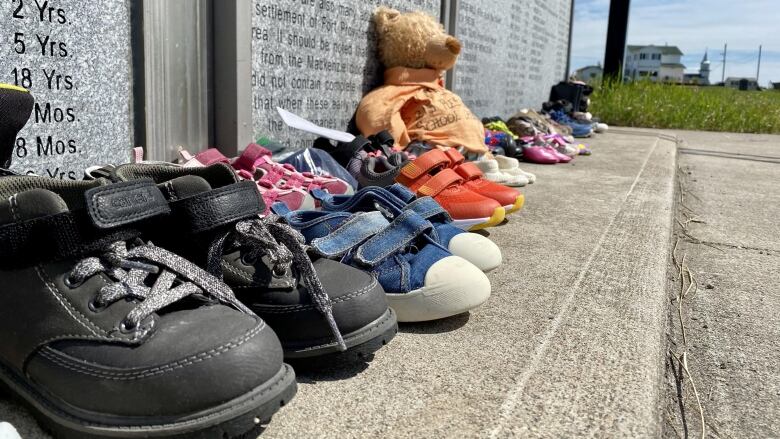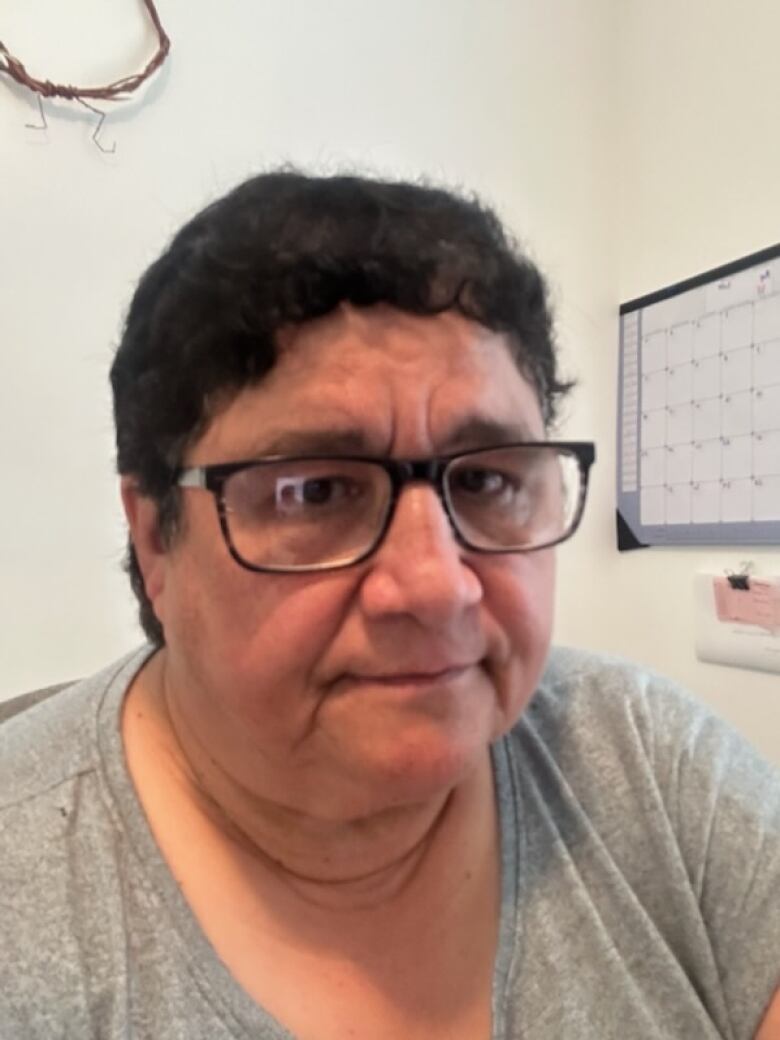Funding cap on residential school searches 'like a slap in the face,' N.W.T. survivor says
Federal government capped funding for new searches at $500,000

WARNING: This story contains distressing details.
Some residential school survivors and families in the N.W.T. are criticizing a change to federal funding for searches of former residential school sites.
The federal government is also facing backlash after itannounced last weekit would put a$500,000 annual cap on future searches. Previously, communities could get up to $3 million per year from the Residential Schools Missing Children Community Support Fund.
Connie Benwell isa language co-ordinator at Salt River First Nation in Fort Smith. Benwell, her twin brother and two of her sisters are residential school survivors.
Her uncle alsoattended the Fort Chipewyan Residential School at the age of seven. He never came home and his body was never found, Benwell said.
"My grandparents were not informed of his death, it was all kept quiet ... So when my grandparents went to pick him up andinquired about Uncle Marvin ... they just said he died and were told to accept it," Benwell said.
She said many families, like hers, are still in the dark.
"That money that was allocated was so important to keep these searches going, for the families to get answers."

One ongoing search is at St. Joseph Residential School in Fort Resolution.OnWednesday, the community held a meeting to discuss the investigation.
Rosy Bjornson, a longtime Fort Resolutionresident, attended the meeting.
She said the band council and a panel presented the ongoing archeological work as well as information that the funding cap might impact the search efforts.
"They said the carryover is good for another year or so before they will have to reapply for that," Bjornson said.
Bjornson and all her family members are residential school survivors, including her grandfather who attended St. Joseph Residential School. The school ran from 1903 to 1957 and was operated by the Roman Catholic Church, according to the National Centre for Truth and Reconciliation.
A Crown-Indigenous Relations spokesperson said in an email to CBC that the change would apply to new agreements, not previously signed ones.
"We are making adjustments to the Residential Schools Missing Children Community Support Fund, in order to take a sustainable approach that provides funding to as many community-led applications as possible," the spokesperson wrote.
Bjornson said it's a step back for allthe work done toward truth and reconciliation.
"I don't appreciate what Canada is doing to our people. Again, it's like a slap in the face,"Bjornson said.
Support is available for anyone affected by their experience at residential schools or by the latest reports.
A national Indian Residential School Crisis Line has been set up to provide support for survivors and those affected. People can access emotional and crisis referral services by calling the 24-hour national crisis line: 1-866-925-4419.
Mental health counselling and crisis support is also available 24 hours a day, seven days a week through the Hope for Wellness hotline at 1-855-242-3310 or by online chat athopeforwellness.ca.












_(720p).jpg)


 OFFICIAL HD MUSIC VIDEO.jpg)
.jpg)



























































































